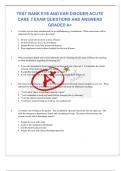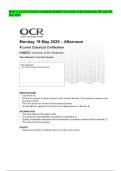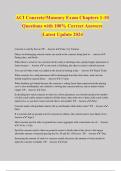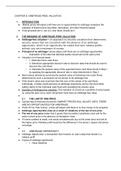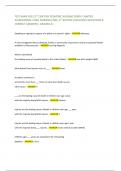GALILEO, University System of Georgia
GALILEO Open Learning Materials
Education Open Textbooks Education
Spring 2015
Educational Learning Theories: 2nd Edition
Molly Zhou
Dalton State College,
David Brown
Dalton State College,
Follow this and additional works at: https://oer.galileo.usg.edu/education-textbooks
Part of the Educational Psychology Commons
Recommended Citation
Zhou, Molly and Brown, David, "Educational Learning Theories: 2nd Edition" (2015). Education Open Textbooks. 1.
https://oer.galileo.usg.edu/education-textbooks/1
This Open Textbook is brought to you for free and open access by the Education at GALILEO Open Learning Materials. It has been accepted for
inclusion in Education Open Textbooks by an authorized administrator of GALILEO Open Learning Materials. For more information, please contact
.
, Educational
Learning Theories
Molly Y. Zhou
David Brown
, 2
Educational Learning Theories
edited by
Molly Y. Zhou
Dalton State College
David Brown
Dalton State College
December, 2017
This work is licensed under the Creative Commons Attribution-NonCommercial-ShareAlike 4.0 International license (CC BY-NC-SA).
Cite the book:
Zhou, M., & Brown, D. (Eds.). (2017). Educational learning theories. Retrieved from [link]
, 3
Permission to Use Acknowledgements
Grateful acknowledgement is made to the following sources for Permission to Use by Creative Commons licenses or authors or proper copy right holders:
Chapter 1 Behaviorism
New World Encyclopedia. (2016, May 26). Behaviorism. Retrieved from http://web.newworldencyclopedia.org/entry/Behaviorism
Standridge, M. (2002). Behaviorism. In M. Orey (Ed.), Emerging perspectives on learning, teaching, and technology. Retrieve from
http://epltt.coe.uga.edu/index.php?title=Behaviorism
Chapter 2 Stages of Cognitive Development
Wood, K. C., Smith, H., & Grossniklaus, D. (2001). Piaget's stages of cognitive development. In M. Orey (Ed.), Emerging perspectives on learning,
teaching, and technology. Retrieved from http://epltt.coe.uga.edu/index.php?title=Piaget%27s_Stages
Chapter 3 Social Cognitive Theory
Kelland, M. (n.d.). Social learning theory and personality development. Retrieve from https://cnx.org/contents/oiev6HcT@1/Social-Learning-Theory-and-
Per
Social cognitive theory. (n.d.). Retrieved from https://en.wikipedia.org/wiki/Social_cognitive_theory
Social learning theory. (2017, June 14). Retrieved from http://hlwiki.slais.ubc.ca/index.php/Social_learning_theory
Social-cognitive perspectives on personality. (n.d.). Retrieved from https://courses.lumenlearning.com/boundless-psychology/chapter/social-cognitive-
perspectives-on-personality/
Chapter 4 Sociocultural Theory
Alpay, E. (n.d.). The contribution of Vygotsky’s theory to our understanding of the relation between the social world and cognitive development. Retrieved
from https://www.surrey.ac.uk/iceepad
McLeod, S. A. (2014). Lev Vygotsky. Retrieved from www.simplypsychology.org/vygotsky.html
Lev Vygotsky. (2017, June 2). Retrieved from http://hlwiki.slais.ubc.ca/index.php/Lev_Vygotsky#Criticism
Chapter 5 Theory of Moral Development
Absolute astronomy. (n.d.). Kohlberg’s stages of moral development. Retrieved from
http://www.absoluteastronomy.com/topics/Kohlberg%27s_stages_of_moral_development
Huitt, W. (2004). Moral and character development. Educational Psychology Interactive. Valdosta, GA. Retrieved from
http://www.edpsycinteractive.org/morchr/morchr.html
Kline, J. T. (2017). Morality, cheating, and the purpose of public education. Retrieved from
http://preserve.lehigh.edu/cgi/viewcontent.cgi?article=3663&context=etd
Nucci, L. P. (2009). Nice is not enough: Facilitating moral development. Upper Saddle River, NJ: Merrill/Prentice Hall.
Chapter 6 Experiential Learning Theory
Oxendine, C., Robinson, J., & Willson, G. (2004). Experiential learning. In M. Orey (Ed.), Emerging perspectives on learning, teaching, and technology.
Retrieved from http://epltt.coe.uga.edu/index.php?title=Experiential_Learning
Chapter 7 Bioecological Model of Human Development
Integrated ecological systems and framework. (n.d.). Retrieved from https://sites.google.com/site/humandevelopmentlearning/integrated-framework
Lundberg, M., & Alice Wuermli, A. (Eds.). (2012). Children and youth in crisis: Protecting and promoting human development in times of economic
shocks. Washington, D.C.: World Bank. doi: 10.1596/978-0-8213-9547-9. Retrieved from
https://openknowledge.worldbank.org/bitstream/handle/10986/9374/702600PUB0EPI0067902B09780821395479.pdf?sequence=1
Chapter 8 Psychosocial Theory of Identity Development
Erikson's stages of psychosocial development. (2017, October 8). Retrieved from
https://en.wikipedia.org/wiki/Erikson%27s_stages_of_psychosocial_development
Erik Erikson. (n.d.). Retrieved from https://erikerikson.wikispaces.com/Classroom+Examples
Chapter 9 Theory of Multiple Intelligences
Criticism to MI theory. Retrieved from https://appsychtextbk.wikispaces.com/Criticism+to+MI+Theory
Giles, E., Pitre, S., & Womack, S. (2003). Multiple intelligences and learning styles. In M. Orey (Ed.), Emerging perspectives on learning, teaching, and
technology. Retrieved from http://epltt.coe.uga.edu/index.php?title=Multiple_Intelligences_and_Learning_Styles
Chapter 10 Bloom’s Taxonomy
Bloom's taxonomy. (n.d.). Retrieved from https://en.wikipedia.org/wiki/Bloom%27s_taxonomy#Criticism_of_the_taxonomy
Clark, D. R. (2015, January 12). Bloom’s taxonomy of learning domains. Retrieved from http://nwlink.com/~donclark/hrd/bloom.html#three_domains
Clark, D. R. (2015, January 12). Bloom’s taxonomy of learning domains. Retrieved from http://nwlink.com/~donclark/hrd/bloom.html#three_domains
Clark, D. R. (2015a, January 12). Bloom’s Taxonomy: The original cognitive domain. Retrieved from
http://nwlink.com/~donclark/hrd/Bloom/original_cognitive_version.html
Clark, D. R. (2015b, January 12). Bloom’s taxonomy: The psychomotor domain. Retrieved from
http://nwlink.com/~donclark/hrd/Bloom/psychomotor_domain.html
Clark, D. R. (2015c, January 12). Bloom’s taxonomy: The affective domain. Retrieved from http://nwlink.com/~donclark/hrd/Bloom/affective_domain.html
Clark, D. R. (2015d, January 12). Learning strategies or instructional strategies. Retrieved from http://nwlink.com/~donclark/hrd/strategy.html
Chapter 11 Theory of Human Motivation
Maslow, A. H. (1943). A theory of human motivation. Psychological Review, 50, 370-396. Retrieved from
http://psychclassics.yorku.ca/Maslow/motivation.htm#f1
McLeod, S. A. (2017). Maslow's hierarchy of needs. Retrieved from www.simplypsychology.org/maslow.html
Chapter 12 Information Processing Theory
Baker, A. (2016, June 22). Informational processing theory for the classroom. (n.d.). Retrieved from https://www.oercommons.org/authoring/14326-
informational-processing-theory-for-the-classroom/view
GALILEO Open Learning Materials
Education Open Textbooks Education
Spring 2015
Educational Learning Theories: 2nd Edition
Molly Zhou
Dalton State College,
David Brown
Dalton State College,
Follow this and additional works at: https://oer.galileo.usg.edu/education-textbooks
Part of the Educational Psychology Commons
Recommended Citation
Zhou, Molly and Brown, David, "Educational Learning Theories: 2nd Edition" (2015). Education Open Textbooks. 1.
https://oer.galileo.usg.edu/education-textbooks/1
This Open Textbook is brought to you for free and open access by the Education at GALILEO Open Learning Materials. It has been accepted for
inclusion in Education Open Textbooks by an authorized administrator of GALILEO Open Learning Materials. For more information, please contact
.
, Educational
Learning Theories
Molly Y. Zhou
David Brown
, 2
Educational Learning Theories
edited by
Molly Y. Zhou
Dalton State College
David Brown
Dalton State College
December, 2017
This work is licensed under the Creative Commons Attribution-NonCommercial-ShareAlike 4.0 International license (CC BY-NC-SA).
Cite the book:
Zhou, M., & Brown, D. (Eds.). (2017). Educational learning theories. Retrieved from [link]
, 3
Permission to Use Acknowledgements
Grateful acknowledgement is made to the following sources for Permission to Use by Creative Commons licenses or authors or proper copy right holders:
Chapter 1 Behaviorism
New World Encyclopedia. (2016, May 26). Behaviorism. Retrieved from http://web.newworldencyclopedia.org/entry/Behaviorism
Standridge, M. (2002). Behaviorism. In M. Orey (Ed.), Emerging perspectives on learning, teaching, and technology. Retrieve from
http://epltt.coe.uga.edu/index.php?title=Behaviorism
Chapter 2 Stages of Cognitive Development
Wood, K. C., Smith, H., & Grossniklaus, D. (2001). Piaget's stages of cognitive development. In M. Orey (Ed.), Emerging perspectives on learning,
teaching, and technology. Retrieved from http://epltt.coe.uga.edu/index.php?title=Piaget%27s_Stages
Chapter 3 Social Cognitive Theory
Kelland, M. (n.d.). Social learning theory and personality development. Retrieve from https://cnx.org/contents/oiev6HcT@1/Social-Learning-Theory-and-
Per
Social cognitive theory. (n.d.). Retrieved from https://en.wikipedia.org/wiki/Social_cognitive_theory
Social learning theory. (2017, June 14). Retrieved from http://hlwiki.slais.ubc.ca/index.php/Social_learning_theory
Social-cognitive perspectives on personality. (n.d.). Retrieved from https://courses.lumenlearning.com/boundless-psychology/chapter/social-cognitive-
perspectives-on-personality/
Chapter 4 Sociocultural Theory
Alpay, E. (n.d.). The contribution of Vygotsky’s theory to our understanding of the relation between the social world and cognitive development. Retrieved
from https://www.surrey.ac.uk/iceepad
McLeod, S. A. (2014). Lev Vygotsky. Retrieved from www.simplypsychology.org/vygotsky.html
Lev Vygotsky. (2017, June 2). Retrieved from http://hlwiki.slais.ubc.ca/index.php/Lev_Vygotsky#Criticism
Chapter 5 Theory of Moral Development
Absolute astronomy. (n.d.). Kohlberg’s stages of moral development. Retrieved from
http://www.absoluteastronomy.com/topics/Kohlberg%27s_stages_of_moral_development
Huitt, W. (2004). Moral and character development. Educational Psychology Interactive. Valdosta, GA. Retrieved from
http://www.edpsycinteractive.org/morchr/morchr.html
Kline, J. T. (2017). Morality, cheating, and the purpose of public education. Retrieved from
http://preserve.lehigh.edu/cgi/viewcontent.cgi?article=3663&context=etd
Nucci, L. P. (2009). Nice is not enough: Facilitating moral development. Upper Saddle River, NJ: Merrill/Prentice Hall.
Chapter 6 Experiential Learning Theory
Oxendine, C., Robinson, J., & Willson, G. (2004). Experiential learning. In M. Orey (Ed.), Emerging perspectives on learning, teaching, and technology.
Retrieved from http://epltt.coe.uga.edu/index.php?title=Experiential_Learning
Chapter 7 Bioecological Model of Human Development
Integrated ecological systems and framework. (n.d.). Retrieved from https://sites.google.com/site/humandevelopmentlearning/integrated-framework
Lundberg, M., & Alice Wuermli, A. (Eds.). (2012). Children and youth in crisis: Protecting and promoting human development in times of economic
shocks. Washington, D.C.: World Bank. doi: 10.1596/978-0-8213-9547-9. Retrieved from
https://openknowledge.worldbank.org/bitstream/handle/10986/9374/702600PUB0EPI0067902B09780821395479.pdf?sequence=1
Chapter 8 Psychosocial Theory of Identity Development
Erikson's stages of psychosocial development. (2017, October 8). Retrieved from
https://en.wikipedia.org/wiki/Erikson%27s_stages_of_psychosocial_development
Erik Erikson. (n.d.). Retrieved from https://erikerikson.wikispaces.com/Classroom+Examples
Chapter 9 Theory of Multiple Intelligences
Criticism to MI theory. Retrieved from https://appsychtextbk.wikispaces.com/Criticism+to+MI+Theory
Giles, E., Pitre, S., & Womack, S. (2003). Multiple intelligences and learning styles. In M. Orey (Ed.), Emerging perspectives on learning, teaching, and
technology. Retrieved from http://epltt.coe.uga.edu/index.php?title=Multiple_Intelligences_and_Learning_Styles
Chapter 10 Bloom’s Taxonomy
Bloom's taxonomy. (n.d.). Retrieved from https://en.wikipedia.org/wiki/Bloom%27s_taxonomy#Criticism_of_the_taxonomy
Clark, D. R. (2015, January 12). Bloom’s taxonomy of learning domains. Retrieved from http://nwlink.com/~donclark/hrd/bloom.html#three_domains
Clark, D. R. (2015, January 12). Bloom’s taxonomy of learning domains. Retrieved from http://nwlink.com/~donclark/hrd/bloom.html#three_domains
Clark, D. R. (2015a, January 12). Bloom’s Taxonomy: The original cognitive domain. Retrieved from
http://nwlink.com/~donclark/hrd/Bloom/original_cognitive_version.html
Clark, D. R. (2015b, January 12). Bloom’s taxonomy: The psychomotor domain. Retrieved from
http://nwlink.com/~donclark/hrd/Bloom/psychomotor_domain.html
Clark, D. R. (2015c, January 12). Bloom’s taxonomy: The affective domain. Retrieved from http://nwlink.com/~donclark/hrd/Bloom/affective_domain.html
Clark, D. R. (2015d, January 12). Learning strategies or instructional strategies. Retrieved from http://nwlink.com/~donclark/hrd/strategy.html
Chapter 11 Theory of Human Motivation
Maslow, A. H. (1943). A theory of human motivation. Psychological Review, 50, 370-396. Retrieved from
http://psychclassics.yorku.ca/Maslow/motivation.htm#f1
McLeod, S. A. (2017). Maslow's hierarchy of needs. Retrieved from www.simplypsychology.org/maslow.html
Chapter 12 Information Processing Theory
Baker, A. (2016, June 22). Informational processing theory for the classroom. (n.d.). Retrieved from https://www.oercommons.org/authoring/14326-
informational-processing-theory-for-the-classroom/view

